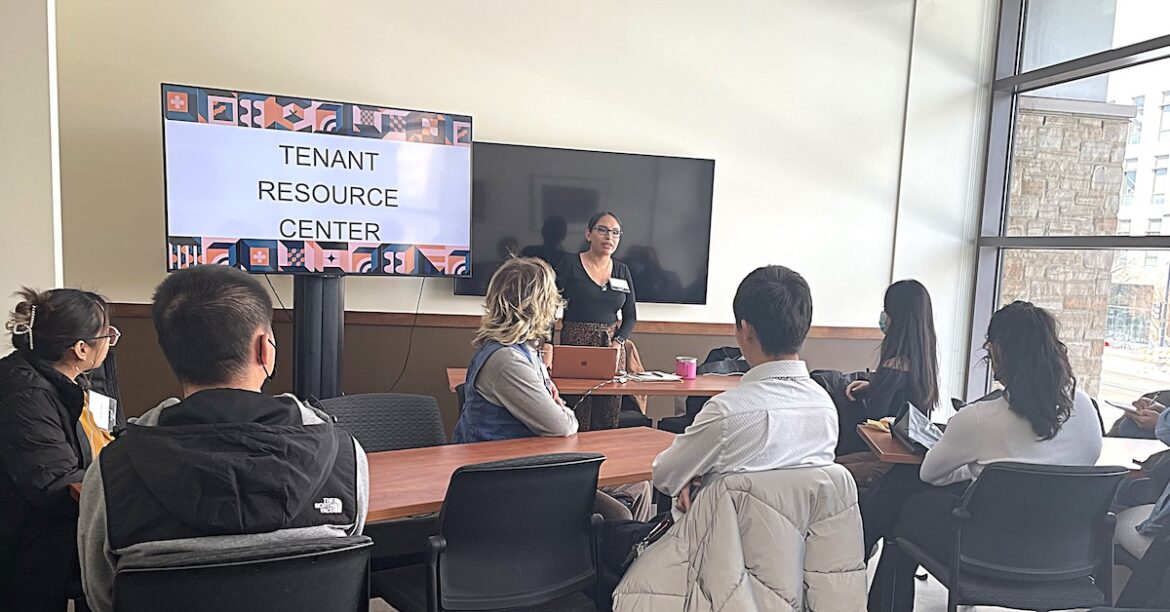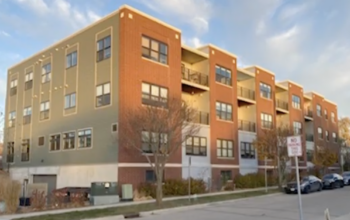Throughout Heidi Wegleitner’s 18 years as an attorney, helping people facing eviction has been a significant part of her legal practice.
It’s a cause she adores, especially because she knows that every eviction case she wins means preventing a household from sleeping out in the freezing Midwest cold.
“There are lots of secondary traumas that I experience because sometimes I’m representing people who don’t have much other support in their lives,” Wegleitner said.
Even with those wins, the impacts could be minimal because of the overwhelming number of eviction cases that she and her colleagues at Legal Action of Wisconsin cannot handle.
The COVID-19 emergency assistance fund helped to reduce eviction in Dane County. However, the federal funding is ending next year. Rights advocates predict that there will be an increase in eviction rate in the county because most of the households that were supported cannot afford rents for the apartments they occupy.
Although the pandemic had a deadly impact on the world, Wegleitner said it was only during the pandemic that eviction cases were halted for a while because the government placed a moratorium on them to prevent the spread of the virus.
The American Rescue Plan has provided a stimulus to the economy since 2021, including rental assistance, to cushion the economic impacts of the pandemic on households across the United States.
The rental assistance includes the payments of monthly rents, past-due rents and security deposits, as well as other services like free legal counseling and representation for individuals who are homeless or at risk of homelessness.
The Tenant Resource Center is one of the organizations the City of Madison used to manage the rental assistance. With the federal funding, the center has recruited more staff to provide guidance and support to tenants facing eviction, and it has contracted more attorneys to represent tenants in court.
These interventions have reduced the burden on Wegleitner and other advocates in recent years and have subsequently helped many families that are at the risk of being homeless.
According to the center’s 2023 report, 82% of 2,437 eviction cases in Dane County were dismissed in court due to the Eviction Diversion and Defense Program, a joint program by the center and other organizations. However, federal funding ends in 2025, and these gains are at the risk of being reversed if there are no funds to continue.

Based on the congestion of cases on court dates, Hannah Renfro, executive director of the Tenant Resource Center, forecasts that Dane County may witness more than 3,000 eviction cases by the end of 2024.
“We had almost 750 people come to our office last month, and we had over 1,000 phone calls that we responded to,” Renfro said.
Refro acknowledged the center’s services cannot provide a permanent solution to eviction because of the entrenched poverty and lack of affordable housing in the community, but they can provide relief to individuals in distress.
“We have somebody here that can talk to them about what their options are, what does this look like, and can help them to navigate the court procedures,” Refro said.
One of the major things that make eviction cases difficult in Dane County is that the laws of Wisconsin do not permit a right to counsel for tenants facing eviction, and the maximum trial period is 30 days.
While the City of Madison and partners are making strides to build more housing, the Housing Snapshot Report for 2023 reveals that there is still a gap of 13,300 affordable units to meet the housing demands of low-income earning families.
Linette Rhodes, a community development manager for the City of Madison, said her office acknowledges the gains made by the Tenant Resource Center and other partners on eviction matters but said the city would have to review the data after the emergency rental assistance ends in September 2025.
“That will help us educate our elected officials of what’s needed in future budgets,” Rhodes said.
Rhodes is not certain that the city will have another huge amount as the federal funding, so it might refocus on housing mediation and counseling services.
“In the case that these federal funds are no longer available, some of our services will have to resort back to what we kind of offered pre-pandemic, which was more housing mediation services and more counseling,” Rhodes said.
Wegleitner is encouraged by the growing awareness on eviction issues, but until there is a better public understanding of its impacts on households, she is not hopeful that the problem will be resolved soon.
“The impact it has is huge,” Wegleitner said. “Losing your home means losing your privacy, losing your dignity, losing your security.”
For more information, visit The Tenant Resource Center.






